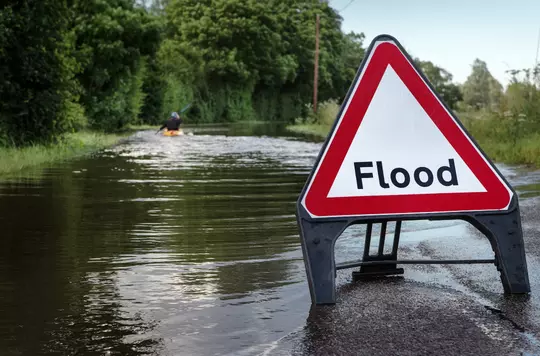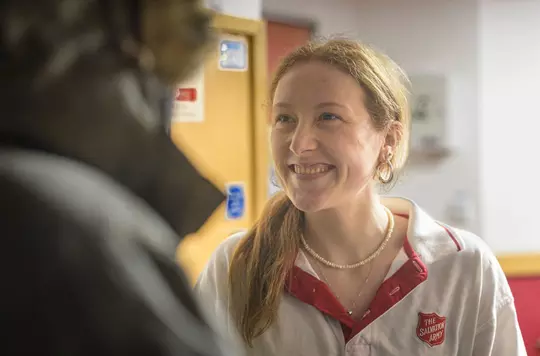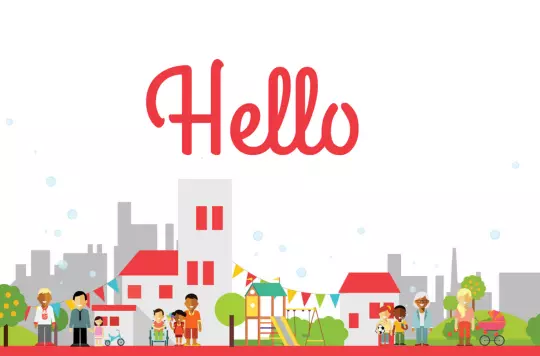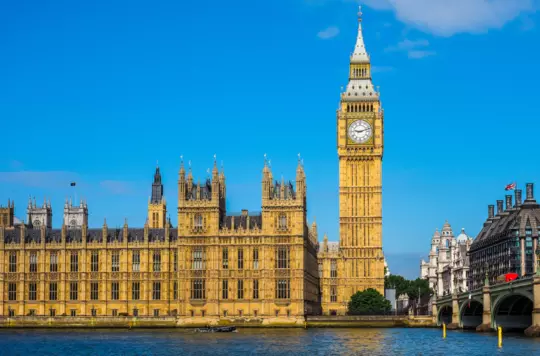29 June 2024
Polling stations: Making it count

Salvationist explores how corps can turn polling day into an opportunity for outreach.
On Thursday 4 July, millions of people across the UK will cast their votes in the 2024 general election. Some will step inside Salvation Army halls to vote. How are those buildings selected? And how can that be turned into a missional opportunity?
Premises for polling are picked by local authorities, with a review of places carried out at least once every five years. Several factors are considered, from transport links and the space available to the building’s availability. It must also be accessible so that people can vote without facing barriers.
Corps across England, Wales and Scotland have served as polling places in both local and general elections. On Thursday, many of them will again welcome voters through their doors.
Footfall season
The Public Affairs Unit encourages corps to accept requests to be used for polling, as ‘it brings many people into our buildings who would otherwise not do so’.
‘It is a great opportunity to have several hundred people come through the door,’ agrees Major Peter Renshaw (Aberdeen Citadel). The corps has been used as a polling place for many years.
Camberwell Corps was used for the first time in the recent local elections and will be used again on Thursday.
‘It allows for a lot of footfall. You never know what that may lead to,’ observes corps officer Captain Richard Wearmouth.
‘It is a great missional opportunity to engage with people who might not know we are here, never mind what we do,’ agrees Captain Nicola Brooksbank (Southend Citadel). Its hall will also be a polling place again on Thursday.
Right place, right time
Polling stations are open from 7am to 10pm and it is strictly required that voters can vote safely and in secret, with no campaigning or influencing their vote. To ensure there is no tampering, tight security is in place. All this is handled by local authority officials.
‘We helped with how they would set up to make sure it would operate securely,’ explains Richard. ‘We got to build relationships with the officials and they sent us positive feedback.’
Camberwell decided the safest thing would be to cancel a group that would take place on polling day, so that officials could have full access to the building. Aberdeen Citadel has similarly decided not to have any other activities in the building on polling day.
At Shoeburyness Corps, the main hall will be used once again as a polling place, with no activities typically running on Thursdays. However, the charity shop on site will remain open.
Corps officer Captain Jonathan Heward says: ‘We often extend its opening hours to make benefit of the additional footfall. We also have volunteers available to talk with people who come in during the day.
Southend Citadel hasn’t cancelled any of its usual activities, thanks to the number of halls and rooms in the building.
‘Our songsters rehearsal is on a Thursday evening in the next room,’ says Nicola. ‘People voting have remarked on enjoying hearing them and it is not unusual for them to hang around or listen. The staff appreciate it too!’
Building relationships
Regardless of whether activities take place, being a polling place is an opportunity to connect with voters and build relationships.
‘We try to make sure there are people from the church around to say hello and be welcoming,’ says Nicola.
There are the officials manning the polling stations too.
Peter says: ‘There will be a uniformed Salvationist on site from 5.30am to midnight to provide hospitality to officials.’
‘We make sure they know they can make themselves at home,’ chimes in Nicola. ‘We also discovered last year it was a good opportunity to chat to community safety officers and others who called in to make sure everything was OK.’
While there are restrictions on what can be displayed at a polling station, noticeboards or literature on the way in and out of the building are useful points of contact too.
‘Our entrance has clear signage about who we are and how we serve the community,’ comments Captain Rachel Dunham, corps officer at Plymouth Exeter Hall Whitleigh, which has also served as a polling station in the past.
Peter adds: ‘I keep an up-to-date noticeboard with corps activities and a Christian poster at the entrance. There are leaflets and Christian literature for people to take.’
‘We recently designed a sign for the corps with our mission to love God and love others, which is right in the centre of our entrance,’ says Richard. ‘It is clear we are a Christian church.’
‘For last polling day we had posters for all our activities displayed,’ says Nicola. ‘We also had flyers in the entrance alongside devotional books such as Our Daily Bread.
‘This year we’ve put together a big portable display board that guides people to the hall used for voting and sections off our worship hall.’
At Shoeburyness, as well as a noticeboard in the foyer advertising the corps programme, there is a Hello Community banner stand, plus Christian posters.
Leaflets being picked up can be a promising indicator of engagement.
‘A number of flyers were taken,’ says Nicola. ‘In the days after, we received calls and emails from a couple of people asking for further details. We’ve had someone come to one of our weekday activities as a result of the information he saw when he came to vote.’
The impact also pays off in other ways, such as through the money received for hiring out the premises.
‘We welcome the income it provides!’ says Rachel.
‘It’s a good donation towards our community work,’ agrees Richard. ‘It’s a win-win situation.’
How can a corps serving as a polling place make the most of it?
‘See it as an opportunity for community engagement – although the income is an incentive too! – and be intentional about using the building to share the good news,’ proposes Nicola.
‘Make sure the hall is well presented,’ suggests Peter. ‘Have one or two people in uniform or witness wear visible on the day.’
‘Be prepared to support the officials as it’s an important day and they have an important job,’ encourages Richard.
‘Be hospitable and helpful to them,’ agrees Peter, ‘and they will want to use the building again.’
Discover more

Ahead of the general election on 4 July, Captain John Clifton continues a series of reflections about The Salvation Army’s four key principles for political candidates.

Ahead of the general election on 4 July, Captain John Clifton begins a series of reflections about The Salvation Army’s four key principles for political candidates.

These resources are a great way to introduce your corps to members of your community as well as share info about The Salvation Army nationally.

We speak into areas of public policy to support change for the benefit of some of the most disadvantaged people in our communities.